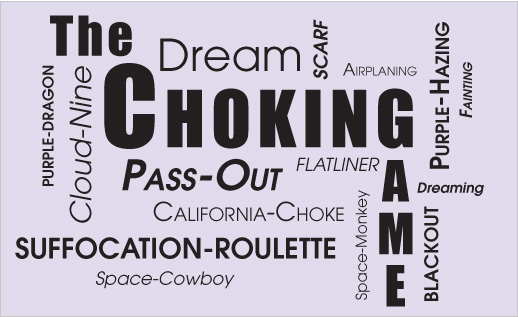Students play deadly game

January 31, 2012
It’s a game with the most severe consequence-death.
And it’s a game that’s touched the family of Simpson senior KeriGlenn Waterhouse.
Joshua Engle was only 13 years old when he passed away from what chokinggame.net calls The Choking Game.
Engle was Waterhouse’s younger brother.
“I had no idea he was playing this game,” Waterhouse said. “It wasn’t until after his death that I found out and that was only because it was asked if he had done that, so it was investigated and the signs were everywhere. Before this was determined his death appeared to be a suicide, but the timeline at which it happened, it being a suicide didn’t match up.”
Waterhouse, oldest of six siblings, is doing her best to help the family get through the tough times of suddenly losing Engle.
“When you bring Joshua up he (CJ, 4, the youngest sibling) will say that he died and he’s in Heaven,” Waterhouse said. “My parents try to stay strong for us kids, but they do break down too. We find peace by our faith.”
According to chokinggame.net the object of The Choking Game (also known by the names Fainting Game or Space Monkey among others) is asphyxiation-to restrict oxygen to the brain for a temporary high. This temporary high causes permanent brain cell death, can knock the participant unconscious and if the pressure isn’t applied correctly, the participant can die.
The U.S. Center for Disease Control and Prevention says that the warning signs range from bloodshot eyes, frequent, severe headaches to increased irritability or hostility.
The average age of people participating in this deadly game is 9-16 and is common predominantly among males. However, deaths have been reported in persons up to age 21 and in females as well.
Rita Audlehelm, director of health services, says that the age group that is heavily influenced by this game is middle school aged and up.
“I haven’t heard much about the game since my time in public education, when I was with the younger-aged kids,” Audlehelm said. “Unfortunately, many people don’t know about it, but I came in contact with it when I was working in the schools.”
However, young students aren’t the only ones playing this deadly game.
A recent study done at a Texas university shows that 16 percent of the 837 students surveyed play the choking game and a staggering 72 percent have played this game at least once.
Audlehelm urges students at Simpson to get help if they’re considering playing this game or to get their friends help if they know their friends are participating in this game.
“There are other alternatives that are safe,” Audlehelm said. “I think the saddest thing is, is when there’s a group and something goes wrong-whether they’re drinking or doing anything else high-risk. It’s sad when that group is there and allows it to happen. If you know someone is doing this, contact our office (health services) or counseling services.”
Waterhouse reminds those who decide to partake in The Choking Game that the outcome can be death.
“This isn’t a game, it takes lives,” Waterhouse said. “More lives than people realize. The innocence of adventurous and curious children get the best of them.”




